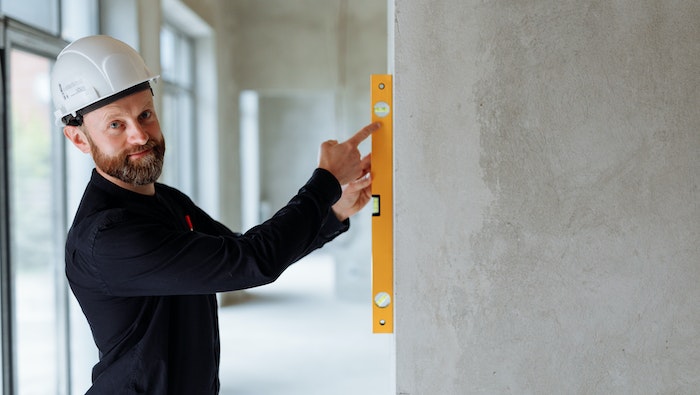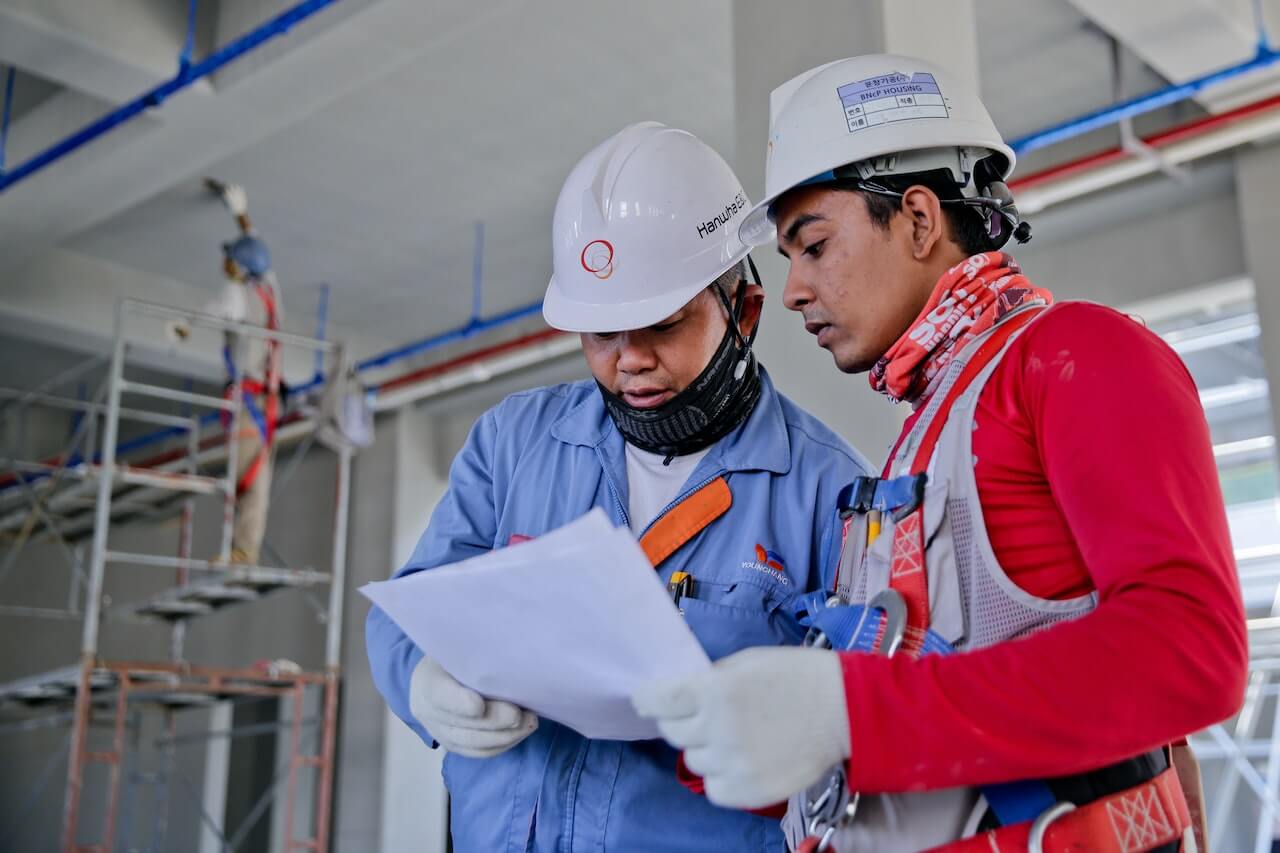Le maître d’oeuvre fait partie des professionnels qui interviennent dans le secteur du bâtiment, les projets de construction, de rénovation, d’agrandissement ou d’aménagement intérieur. Omniprésent lorsqu’il s’agit des travaux architecturaux, il a en effet un rôle déterminant, celui de coordonner le chantier. Vous souhaitez faire construire ou rénover votre maison ? Vous avez entendu parler du maître d’œuvre et vous voulez en savoir plus sur ce professionnel ? Découvrez dans cet article la définition de cet acteur, son rôle, ses missions, et ses obligations.

Qu’est-ce qu’un maître d’œuvre ?
Par définition, le Maître d’œuvre ou MOE est un intervenant chargé de veiller à l’exécution et à la bonne réalisation des travaux sur un chantier. Il peut être une personne physique (architecte ou ingénieur-architecte) ou une personne morale (bureau d’études, cabinet d’architectes, entreprise du BTP [Bâtiment et travaux publics]). Mandaté par le Maître d’ouvrage ou MOA, cet acteur conseille celui-ci, l’accompagne et met en pratique ses besoins et ses souhaits du point de vue technique.
Véritable chef d’orchestre, le maître d’œuvre fait l’interface avec les différents corps du métier (artisans et entreprises) qui interviennent sur le chantier. Il prend en charge la conduite opérationnelle d’un chantier en matière de délais, de techniques et de coûts. Il doit effectivement veiller au respect du cahier de charges et du contrat de maîtrise afin de s’assurer de la conformité du projet avec ce qui a été demandé.
À noter que le maître d’œuvre et le maître d’ouvrage sont totalement différents, surtout au niveau de leurs rôles. Ce dernier est considéré comme le client, celui qui commande les travaux. Il peut être un particulier ou un professionnel travaillant pour le compte d’un client final, qui est en général le propriétaire de la maison ou de l’appartement. En effet, ce dernier peut solliciter un spécialiste du bâtiment avec qui il va signer un contrat pour lui confier « l’assistance à maîtrise d’ouvrage ».
Dans certains cas, la maîtrise d’œuvre et la maîtrise d’ouvrage peuvent être assurées par un seul et même intervenant.
Quelles sont les missions d’un maître d’œuvre ?
Chargé de conduire le projet, le maître d’œuvre est présent dès sa conception jusqu’à la remise des clés. Il a donc des missions précises avant, pendant et après le chantier.
Avant le chantier
En amont du chantier, le maître d’œuvre a pour mission d’aider le maître d’ouvrage à concevoir le projet. Il effectue des études approfondies sur la faisabilité technique et juridique des travaux en vérifiant minutieusement le Plan local d’urbanisme (PLU). Il identifie les éventuelles erreurs de construction et les contraintes techniques des travaux. Dans ce cas, il doit proposer des solutions pour les pallier.
Le maître d’ouvrage peut également confier au maître d’œuvre les démarches administratives des travaux. Il peut, entre autres, être amené à s’occuper de la demande du permis de construire ou de la déclaration préalable de travaux. Il peut aussi assister dans la constitution du dossier pour bénéficier des aides financières dans le cadre de la rénovation (Ma Prime Rénov’, l’éco-prêt à taux zéro ou éco-PTZ, la TVA [Taxe sur la valeur ajoutée] réduite, etc.).
Une fois les études d’avant-projet effectuées, le maître d’œuvre traduira les souhaits du maître d’ouvrage en esquisse. Il aide le donneur d’ordre dans le chiffrage et la budgétisation du chantier. Dès lors, il établit un devis et une estimation du coût global des travaux. Il peut ensuite conseiller sur le choix des artisans et des entreprises qui réaliseront le projet. Il s’agit, en effet, d’un professionnel du BTP qui dispose d’un carnet d’adresses lui permettant de dénicher les prestataires idéals pour tel ou tel chantier. Néanmoins, il ne peut pas prendre la décision à la place du maître d’ouvrage. Sa mission consiste tout simplement à accompagner ce dernier dans la sélection des intervenants.
Une fois le recrutement de différents artisans et entreprises fait, le maître d’œuvre se chargera de leur contrat de travail. Il ne reste plus qu’à préparer les visites du chantier et à organiser les réunions de coordination.
Pendant les travaux
Durant la réalisation des travaux, le maître d’œuvre reste le premier responsable des travaux. Il prend en charge l’encadrement et la coordination du chantier. Il doit surtout veiller à ce que les travaux soient réalisés dans le respect des délais, des lignes budgétaires et de la qualité. Il donnera alors les cadences des travaux en élaborant des plans clairs et détaillés. Il se charge aussi du contrôle de tous les artisans et entreprises qui interviennent sur le chantier.
En outre, il revient au maître d’œuvre d’assurer le suivi de toutes les dépenses journalières en matériaux. Il a aussi pour mission d’encadrer tous les coûts de travaux selon le marché préétabli. Dans ce cas, il fait le choix des matériaux et des matériels dans chaque étape du chantier.
Après le chantier
Premier responsable de la bonne réalisation du projet, le maître d’œuvre s’assure du parfait achèvement du chantier. Il doit vérifier si les travaux sont tout à fait conformes au cahier des charges. Il dirigera alors les démarches d’éventuelle remise à niveau.
Après les vérifications, il assiste le maître d’ouvrage dans la réception des travaux. Il rédige le Procès-verbal (PV) de réception des travaux. Ce PV peut être avec réserves (non-conformité, malfaçons ou erreur de matériau) ou sans réserve (tout est conforme à la commande). Une fois ce document signé, les délais de garantie (garantie de parfait achèvement, garantie décennale, assurance dommages-ouvrage) sont déclenchés.
Quelles sont ses obligations ?
En tant que responsable du bon déroulement du chantier et de l’exécution des travaux, le maître d’œuvre a avant tout un devoir de conseil vis-à-vis du client. Il doit expliquer à ce dernier les divers aspects de l’opération, notamment les risques, les avantages et les inconvénients d’un choix architectural particulier.
Par ailleurs, d’après l’article 1792 du Code civil, le maître d’œuvre est responsable de plein droit, envers le donneur d’ordre, des dommages susceptibles de compromettre la solidité de l’ouvrage ou de le rendre impropre à sa destination. Ceci reste valable jusqu’à 10 ans après la livraison des travaux. Ainsi, une garantie décennale est impérative. Cette assurance est requise dans les cas où des réparations seraient nécessaires.
Comme tous les artisans et les entreprises du BTP, les maîtres d’œuvre se doivent de souscrire une assurance responsabilité civile professionnelle. Cette garantie est indispensable en cas de dommage corporel, matériel ou immatériel qui survient durant le chantier.
Qui peut prétendre au poste de maître d’œuvre ?
En principe, le maître d’œuvre est un architecte. D’ailleurs, l’intervention de ce professionnel est obligatoire si l’emprise au sol ou la surface de plancher de la maison objet du projet est supérieure à 170 m2 et que les travaux requièrent un permis de construire. Ainsi, s’il agit en tant que maître d’œuvre, il s’investit dans l’établissement des plans. Il se charge aussi de toutes les étapes de l’opération.
Le maître d’œuvre peut également être un ingénieur. Selon l’ampleur du projet, le recours à un spécialiste en ingénierie et en architecture s’impose. Il est, entre autres, utile si les caractéristiques techniques du chantier impliquent des calculs complexes.
L’économiste de la construction peut aussi occuper le poste de maître d’œuvre. C’est un choix particulièrement pertinent pour un chantier de grande envergure dont le budget doit être calculé à la virgule près.
Par ailleurs, le maître d’artisan peut être un bureau d’études ou une entreprise de BTP.
Comment devenir maître d’œuvre ?

Pour être un bon maître d’œuvre, de nombreuses compétences et qualités sont requises. De ce fait, il est indispensable de suivre une formation adaptée.
Formations
En principe, aucune formation n’est obligatoire pour prétendre au poste du maître d’œuvre. Néanmoins, seront de rigueur les parcours permettant à ce professionnel du BTP d’exercer son propre métier (architecte, ingénieur, économiste de la construction). Ainsi, en fonction de l’activité de cet acteur, différents diplômes sont nécessaires, comme :
- un diplôme d’ingénieur travaux,
- un BTS (Brevet de technicien supérieur) études et économie de la construction,
- un BTS bâtiment,
- un diplôme obtenu dans une école de commerce,
- un DUT (Diplôme universitaire de technologie) génie civil,
- la licence pro bâtiment et construction,
- un diplôme d’État d’architecte (permettant de devenir architecte HMNOP [Habilité à exercer la maîtrise d’œuvre en son nom propre]).
Pour se reconvertir à la maîtrise d’œuvre, les professionnels du BTP peuvent suivre un certain nombre de formations permettant d’obtenir les compétences nécessaires à la conduite du chantier. Dans ce cas, ils peuvent s’orienter dans l’une des thématiques suivantes :
- conduite d’une opération de travaux en bâtiment,
- maîtrise de la réglementation en vigueur,
- gestion des marchés de maîtrise d’œuvre,
- compréhension et identification du cadre juridique d’un chantier,
- gestion de projet en BIM (Building Information Modeling).
Il existe donc plusieurs façons d’arriver au métier de maître d’œuvre. Il peut ensuite exercer en tant que salarié ou à son compte (en créant une société de maîtrise d’œuvre) selon ses compétences et ses expériences.
Qualités requises
Les qualités d’un bon maître d’œuvre dépendent généralement des critères et des exigences du maître d’ouvrage ou du donneur d’ordre. Dans tous les cas, il faut savoir que la maîtrise d’œuvre est une fonction qui requiert une bonne connaissance de la construction et des réglementations en vigueur. Il nécessite également de la polyvalence.
Ainsi, afin de mener à bien leur mission, les maîtres d’œuvre doivent posséder les qualités suivantes :
- le sens de service pour conseiller et accompagner le maître d’ouvrage dans toutes les étapes du projet ;
- le sens du relationnel et de la communication pour pouvoir établir un dialogue efficace avec tous les intervenants du chantier ;
- la réactivité et la résistance au stress pour gérer les différents aléas du chantier ;
- la rigueur et la ponctualité pour assurer le respect du calendrier du chantier ;
- le sens d’organisation et la minutie pour pouvoir coordonner de façon optimale les différentes activités du chantier.
Missionnés à superviser de A à Z le chantier, les maîtres d’œuvre doivent avoir de bons bagages dans le management. Enfin, la maîtrise des outils informatiques, comme les logiciels CAO (Conception assistée par ordinateur), constitue un gros atout.
Quels sont les avantages de faire appel aux services d’un maître d’œuvre ?
Si vous souhaitez réaliser des travaux de construction ou de rénovation, vous vous demandez certainement s’il est pertinent de faire appel à un maître d’œuvre. Voici les 5 principaux avantages de solliciter les services de ce chef d’orchestre de chantier.
Des conseils avisés
Vous avez déjà l’image de votre future maison en tête ? Vous voulez savoir si votre projet est faisable ou non ? Le maître d’œuvre peut vous aider à y voir plus clair. Vous aurez l’opportunité d’être écouté. Il vous suffit donc de lui faire part de vos besoins, vos appréhensions, vos exigences et votre budget. Dès lors, cet expert va concevoir les plans afin d’interpréter vos idées en langage professionnel auprès des artisans et ouvriers.
Un projet sur mesure
En contactant un maître d’œuvre pour rénover ou construire votre maison, vous aurez l’assurance de réaliser un projet unique, à la hauteur de vos attentes. Effectivement, ce professionnel ne vous présentera pas un projet déjà préparé. Il se basera sur vos descriptions, vos envies et votre budget. Pour chacun de ses clients, il va offrir des services personnalisés et proposer un projet unique en son genre.
Des études techniques fiables
Le maître d’œuvre va surtout vous aider dans les études techniques. Dans un projet de construction en particulier, les études du terrain s’avèrent plus complexes. En effet, la nature du sol et ses caractéristiques constituent des critères importants dans la détermination des techniques de construction à adopter. Cet expert vous fournira une analyse fiable afin de garantir la réussite de votre projet.
Le meilleur choix des matériaux et des partenaires
Selon la nature de votre projet (construction ou rénovation) et son envergure, le maître d’œuvre va choisir les équipes ayant les compétences requises. Il peut vous recommander tel ou tel artisan en fonction de sa qualification et le proposer au moment opportun suivant l’avancement des travaux. Il va également vous accompagner sur le choix des matériaux de qualité. Dans ce cas, il vous conseille les fournisseurs les plus fiables.
Une meilleure gestion du chantier
Le maître d’œuvre est surtout missionné pour organiser le chantier, superviser les travaux et coordonner les intervenants. Toutes ces démarches nécessitent des savoir-faire et des compétences. En tant que professionnel du bâtiment et chef d’orchestre, cet expert dispose des connaissances techniques lui permettant de mener à bien la gestion du projet jusqu’à la remise des clés.
Une bonne maîtrise du budget
Grâce à ses contacts professionnels et ses expériences, la collaboration avec un maître d’œuvre vous permettra de connaître à l’avance les coûts des matériaux à utiliser. Vous pourrez ainsi fixer un budget prévisionnel plus réaliste. De plus, chaque marché sera précisé sur chaque corps de métier dans toutes les étapes du chantier. Dans ce cas, vous n’aurez aucun mal à suivre et à gérer votre budget.








